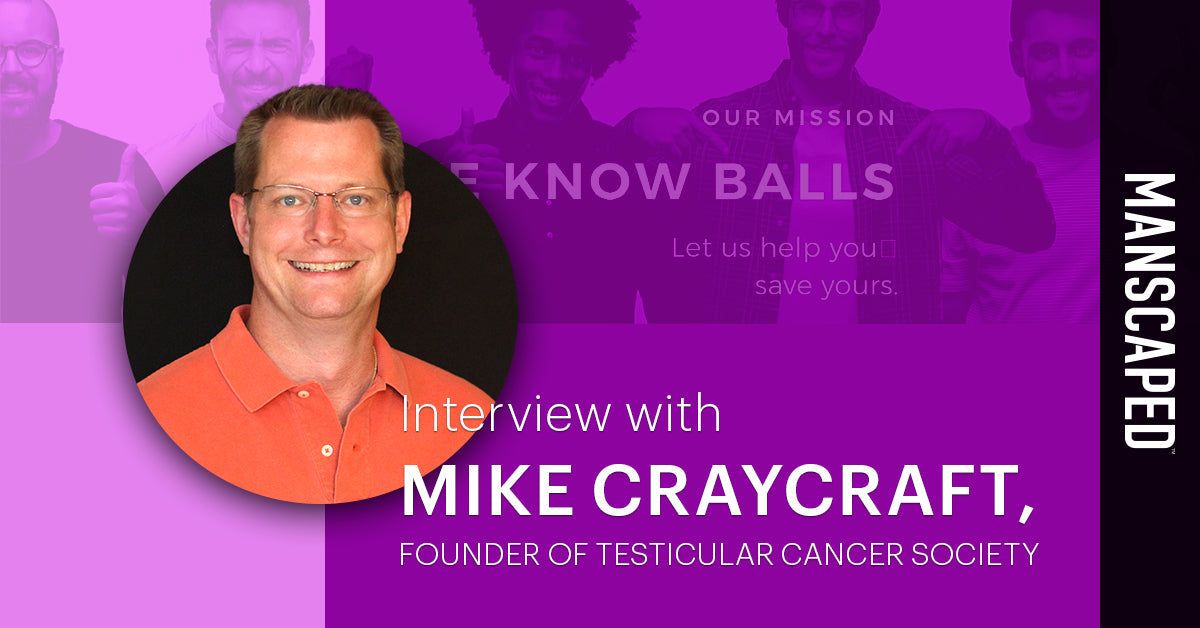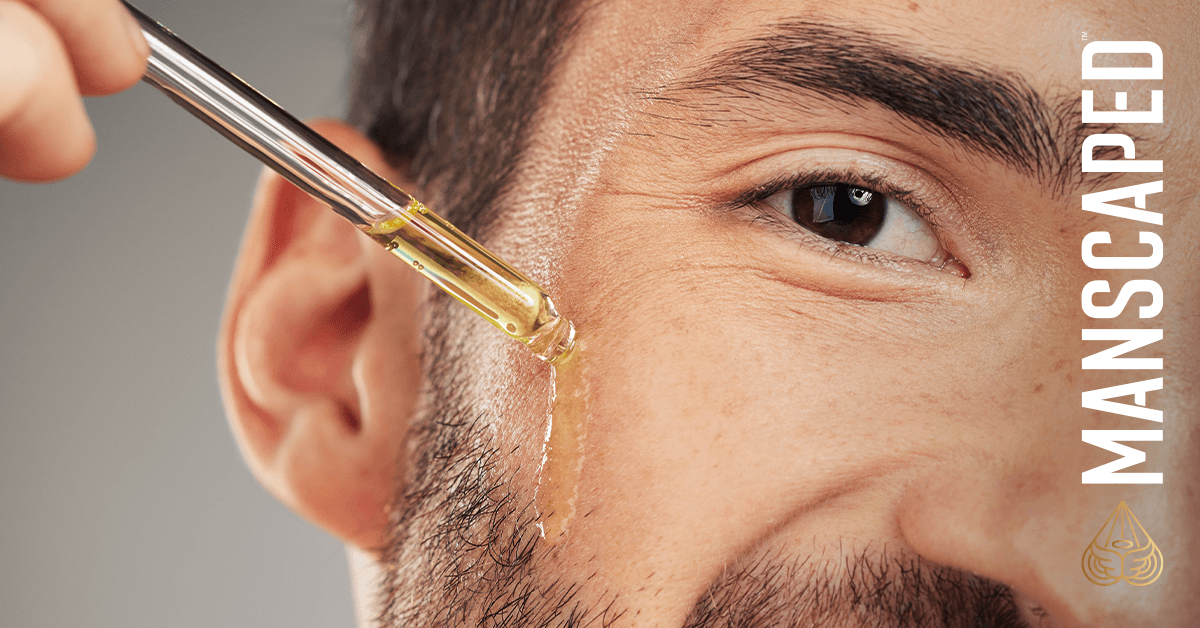
MANSCAPED™ caught up with Mike Craycraft, founder of the Testicular Cancer Society (TCS). Read on to find out about this organization's important work.
What inspired you to found the Testicular Cancer Society?
When I was diagnosed, there wasn't much awareness about and resources for those affected by testicular cancer. What was available was hard to find. I am a clinical pharmacist by trade and felt that I was in a unique position to help make things better for the next guy diagnosed with my medical knowledge and survivor experience.
What is your own survivor story?
Despite being a clinical pharmacist, I had little knowledge about testicular cancer before I was diagnosed. I knew that it existed, but that was about it. After feeling a lump in my testicle, I "knew" immediately in my mind that it was cancer, but instead of going to the doctor, I remained silent for seven months. During this time, I convinced myself that due to my delay in seeking care that cancer must have spread and that I would die from metastatic disease. During the seven months, I lived like I was dying. I took last-minute trips, threw caution to the wind, and even went as far as throwing my own "going away party" back in my hometown during the Thanksgiving weekend. I didn't tell anyone "why" I was throwing the party and figured that in a few months, people would hear that I was dying from testicular cancer and realize it was my attempt to see all my friends one last time. Taking a hard look at my life, the great opportunities/experiences I had had, the amazing friends and family I had, and "making peace with dying" was more difficult than I have words to describe. Not sharing my thoughts or feelings with anyone made it even worse.
Miraculously, I was diagnosed with stage I disease and found out that, indeed, I was going to survive. The way I handled my ordeal seems a little absurd looking back, but I thought that if I delayed care, as a healthcare professional, that many others probably do as well. I then decided to reach out to as many survivors as I could find, learn from their situations and help create a culture of early detection and support to make a difference for the next me.

How can men remind themselves to check themselves monthly?
We have a mobile app that is most easily accessed by going to BallChecker.com, which has instructions on how to do a monthly testicular self-exam and the ability to set a reminder. Guys can also sign up for our text reminder program by texting selfexam to 22999. Once a month, we will send a text reminder with a link to instructions on how to do a testicular self-exam, and that is the only text we send, so we are not blowing up guys' phones.
If a man finds an abnormality during a routine self-exam, what should he do?
We are always available to answer any questions and help with care if someone finds an abnormality. Our BallChecker app has ways to reach us via email, phone number, and even WhatsApp. Guys can reply via our text reminder program as well. Most important is to promptly seek care via a primary care physician, urologist, etc. When caught early testicular cancer is almost 100% curable. It is still highly treatable at later stages, but the burden of those treatments isis much worse. We know what a scary time it can be and that seeking care is not always as easy as it should be. That is why we are here to help overcome those difficulties.
Where is medical science when it comes to eliminating testicular cancer?
There is still some work to do to treat advanced disease, those with chemotherapy-resistant disease, late relapses, and rare cancer types. However, in general, because testicular cancer is so highly treatable, the goals have switched a bit from finding a cure to reducing the burden of the cured. For example, if diagnosed at stage I, most guys can have 45-minute outpatient surgery to remove the testicle and then can just be monitored to make sure it doesn't return. Once it has spread, then the need for further major surgery, 9-12 weeks of chemotherapy, and sometimes radiation therapy come into play. These additional treatments are what can add to further complications later in life, and so again, this is why early detection is key.
What events or fundraisers does the TCS have coming up?

The ongoing pandemic has effectively eliminated any in-person events for the foreseeable future, so we are actively trying to see what we can do from a digital perspective. We are currently working on a great campaign for the late summer, so stay tuned.
Is there anything that you would like the average person to know about testicular cancer?
The most important thing to remember is that testicular cancer primarily affects young men—it's the most common cancer amongst men ages 15-35—although it can occur at any age, and that if caught early, it is almost 100% curable. This is why monthly testicular self-exams and quickly seeing a doctor for any abnormalities is so important. We realize that mentioning that you might have an issue with your testicle isn't always easy and may even be a bit awkward. But, we also know that it isn't awkward in the minds of healthcare professionals, and being evaluated, even for a benign reason, can bring great peace of mind to yourself as well.
04.06.21
Share

Featured Articles
- Your Favorite Ball Deodorant. Now with a New Scent: Perservere.MANSCAPED® + TCS for Testicular Cancer Awareness MonthIntroducing The Lawn Mower® 5.0 Ultra TCS Special Edition and TCS Ball Hero BundleThe Dome Shaver™ Pro vs. The Dome Shaver™ Plus: Which Should You Choose?The Chairman™ Pro vs. The Chairman™ Plus: Which Should You Choose?



